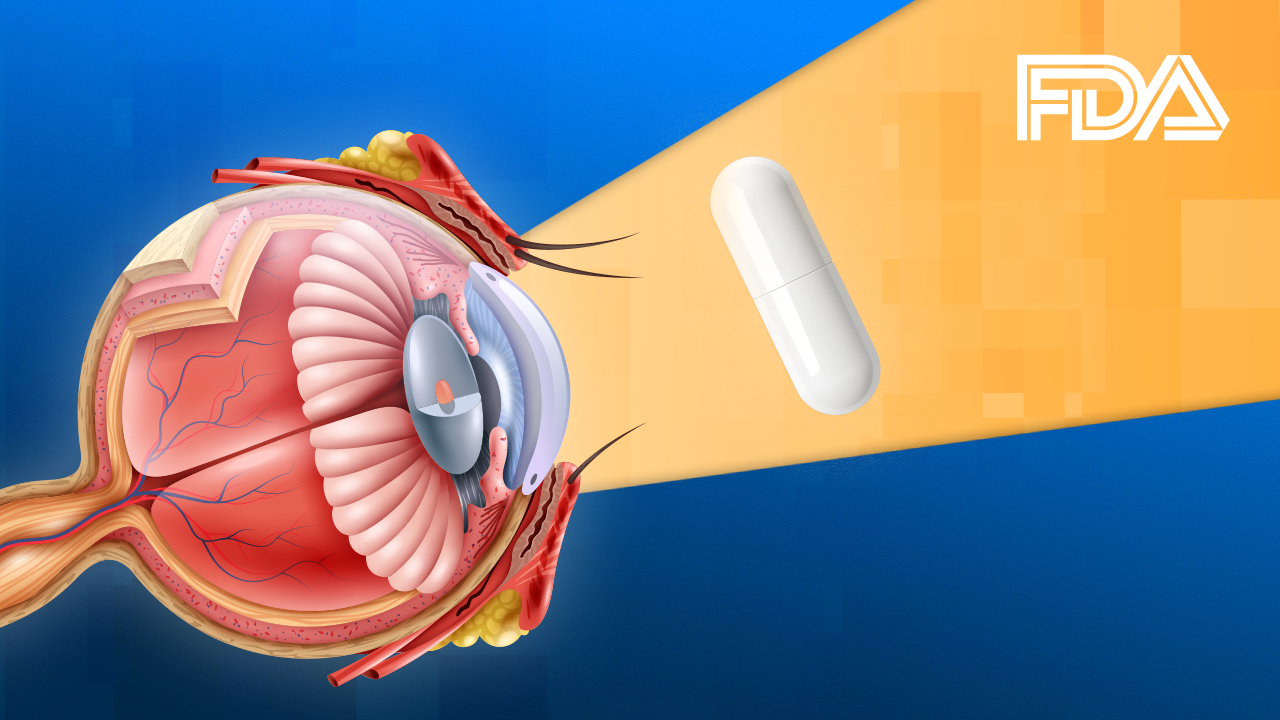A once-daily oral pill for Stargardt? Tinlarebant takes a big step with FDA breakthrough status.
In a major step forward for patients living with Stargardt disease, Belite Bio has announced that the U.S. Food and Drug Administration (FDA) has granted Breakthrough Therapy Designation to its investigational drug Tinlarebant.
Tinlarebant is an orally administered, once-daily tablet, intended as an early intervention to maintain the health and structural integrity of retinal tissue in patients with STGD1 and geographic atrophy (GA).
“Breakthrough therapy designation is an exciting milestone that underscores Tinlarebant’s potential to address a serious unmet need for patients with STGD1—a condition where there are currently no approved therapies,” said Dr. Tom Lin, chairman and CEO of Belite Bio.
If approved, Tinlarebant would become a first-in-class oral treatment for Stargardt disease —offering a convenient and accessible alternative to invasive therapies, and potentially improving adherence and outcomes for patients of all ages.
READ MORE: Ascidian’s RNA Exon Editor for Stargardt Makes Historic First in Gene Therapy
A closer look at the DRAGON trial
The designation was supported by a pre-specified interim analysis of data from the Phase 3 DRAGON trial1—a randomized, double-masked, placebo-controlled, global study designed to evaluate the safety and efficacy of Tinlarebant in adolescent patients with Stargardt disease.
The trial enrolled 104 subjects across 11 countries, including the United States, United Kingdom, Germany, France, Belgium, Switzerland, the Netherlands, China, Hong Kong, Taiwan and Australia. Participants were assigned in a 2:1 ratio to receive either Tinlarebant or a placebo.
The primary efficacy endpoint is the growth rate of atrophic lesions, a hallmark of Stargardt progression. The study also closely monitors safety and tolerability, two critical factors in a disease that affects young patients who may need long-term treatment.
READ MORE: One Day, Three IRD Gene Therapy Triumphs
According to Belite Bio, the drug demonstrated a favorable safety profile, consistent with previous trials and with its mechanism of action. Visual acuity remained stable in most participants over the two-year course of the study—with mean changes from baseline of less than three letters, a notable outcome in a disease that typically causes steady deterioration.
Belite Bio expects the full DRAGON trial readout by the end of 2025, a key milestone that could set the stage for future FDA approval.
Targeting the disease at its source
At the heart of Tinlarebant’s approach is its targeting of retinol binding protein 4 (RBP4)—a transporter protein involved in the metabolism of vitamin A. By inhibiting RBP4, Tinlarebant aims to reduce the toxic accumulation of vitamin A byproducts that damage photoreceptors in STGD1 and related conditions.
“This granting represents a significant achievement for Belite Bio and serves as validation of a therapeutic approach that directly targets the underlying pathophysiology of STGD1 in order to slow or halt the disease process,” said Dr. Nathan L. Mata, Chief Scientific Officer.
Editor’s Note:
- For more information, see Belite Bio’s press release.
- This content is intended exclusively for healthcare professionals. It is not intended for the general public. Products or therapies discussed may not be registered or approved in all jurisdictions, including Singapore.
Reference
- Belite Bio. (2025, February 27). Belite Bio announces interim analysis results from the pivotal global Phase 3 DRAGON trial of Tinlarebant in adolescent Stargardt disease subjects. Available at: https://investors.belitebio.com/news-releases/news-release-details/belite-bio-announces-interim-analysis-results-pivotal-global. Accessed May 23, 2025.



